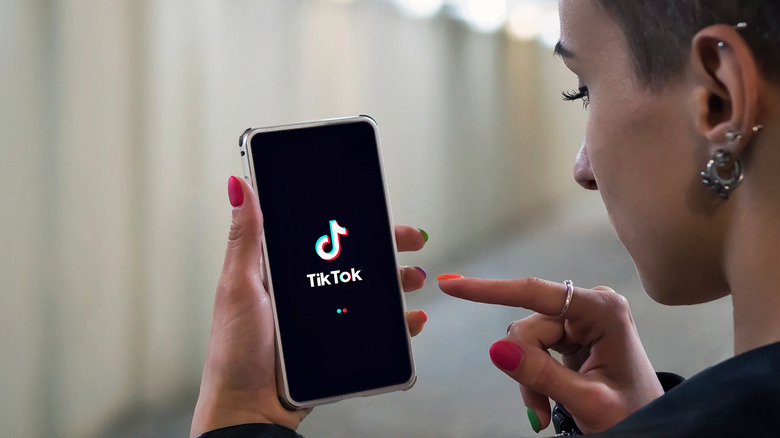What Health Experts Want You To Know About Abortion Misinformation Spread Through Social Media
Since the leaked draft decision from the Supreme Court on the overturning of Roe v. Wade, which ultimately occurred on June 24, 2022, there has been a rise in misinformation concerning abortion on social media platforms, reports CNN. Both poison control officials and medical professionals have expressed concerns that now that many states are banning abortions, people will seek dangerous underground techniques through social media, rather than seeking out established abortion care that's overseen by medical professionals and proven to be safe.
Dr. Joshua Trebach, an emergency medicine physician and medical toxicologist, tells CNN that he has been "seeing things on social media, things like TikTok, Twitter, Facebook, Instagram, people saying 'oh, if Roe v. Wade does get overturned, here are some secret, sneaky ways that you can drink some tea and have an abortion." Trebach has noted that while some herbs promoted on social media may be harmless, many of the herbs advertised as having pregnancy-ending effects can have dangerous and even fatal side effects. In the United States, herbs are considered to be food and therefore are not regulated in the same manner that medication and prescription drugs are overseen and tested. Additionally, negative side effects from consuming herbs aren't necessarily simple to treat, as the toxicology of herbs can be extremely complicated and very detrimental to your health. You should never consume supplements, herbs, or any other substance without first consulting with a licensed healthcare provider.
Combating misinformation and disinformation
In response to the recent rise in unsubstantiated information being spread about DIY and at-home abortion techniques across social media companies, some social media companies have taken action to remove the incorrect information (via CNN). TikTok has said that it is taking steps to remove content that goes against the company's medical misinformation policy. Searches for trending hashtags like #naturalabortion and #herbalabortion are being redirected to the platform's Community Guidelines.
For consumers of social media, it's important to understand how everyone can do their part in combating misinformation and disinformation. To clarify these two terms that are often used interchangeably, misinformation is false information that is spread regardless of ill intent, while disinformation is spread with the intention to deceive (via Insider). Andrea Miller, president of the National Institute for Reproductive Health, tells CNN that she has seen misinformation spread by "well-intentioned people who are outraged and fearful and want to help right now, but they may inadvertently be sharing information that isn't accurate or directing people to nefarious resources without realizing it."
The Stanford Social Innovation Review advises users to refrain from engaging with abortion-related content that they know is disinformation, since engaging with and correcting the false information raises its prominence with social media algorithms and is then spread to more users. Other recommendations include filling content voids by creating unique content with factual, well-sourced information, and taking action to hold social media companies accountable for the spread of dangerous misinformation.


